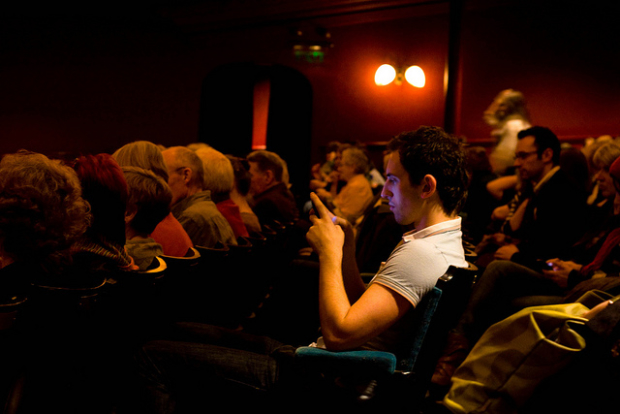Theatre etiquette: a theatre manager's view
As part of our theatre etiquette series, a theatre manager talks to us anonymously about some of the issues he faces

© Mark McQuade/Flickr
I do think audience behaviour has changed recently. People feel they know their rights more and don’t necessarily have to think about other people. It’s all about them: 'this is ridiculous, I shouldn’t have to queue'. There is a sense of entitlement. It always seems to be: 'I’m traumatised now, and what are you going to give me?'
People are angry when they get disrupted by phones, but it also works the other way. The person on the phone says: ‘What’s your problem? It’s my phone and I am busy.’ There’s no sense of being able to put yourself in another person’s shoes.
I think it’s a change that’s more to do with general society rather than specific to theatre. We’re changing as a whole. Examples of the things we have to deal with are people who are drunk, projectile vomiting, worse. A recent example is of two people at the interval demanding to speak to the duty manager at the same time. One was making a complaint that it was too cold in the auditorium, the other that it was too hot. We’re expected to somehow magically create an environment around one seat where it’s cool, and one seat where it’s hot.
Theatre etiquette is a very fine balance for venues. If you start dictating, you’re immediately going to put some people off. Generally we monitor arrivals and try not to make assumptions, like if someone looks like they are drunk – because some people might actually have an illness, or be on medication. But if someone is clearly drunk we wouldn’t let them in.
In extreme cases, and this is a value judgement, we will eject people from the auditorium. But the nuisance of getting someone out who doesn’t want to come can be far more disruptive than actually waiting until the interval or the end of the show. It’s a very difficult call.
When it comes to phones, we do make announcements at the beginning. Some people are incredulous that they can’t use them. If they see a phone lit-up, members of staff will gently intervene, but there was one recently where a woman shouted out ‘I’m dealing with an emergency!’ It makes you ask: why do you think it is OK to deal with the emergency at your seat?
I definitely think it is about staff in the theatre having the ability to deal with the audience. We need to train them to a very high level. But it’s two fold, because we as employers have a duty of care to our employees not to put them at risk. And some people can be violent.
It’s often talked about as if it’s all the venue’s responsibility to manage the audience. But they are individuals, they are people like you and me. Why is it that people feel we are able to tell you what to do?
As a rule, the audiences do differ according to what show is on. But I went to the Royal Opera House recently and a man swung round and started huffing and puffing when someone unwrapped a sweet, before the performance had even started. I wanted to ask: where is it you go in your life that everyone is so quiet? Do you live in a library? Who is to say you’re right and they are wrong in terms of that etiquette?
To me, that is what is wrong with the discussion; it’s as if there’s one bit of the theatre-going community that’s right and another bit of it that has to be lectured to. Which I don’t think is right at all. I think it’s for us to adjust and deal with the audience, but I don’t think it’s for us to dictate to people. I’m not saying we get it right all the time – we don’t. But you can’t please all of the people all of the time, it’s just not possible.












